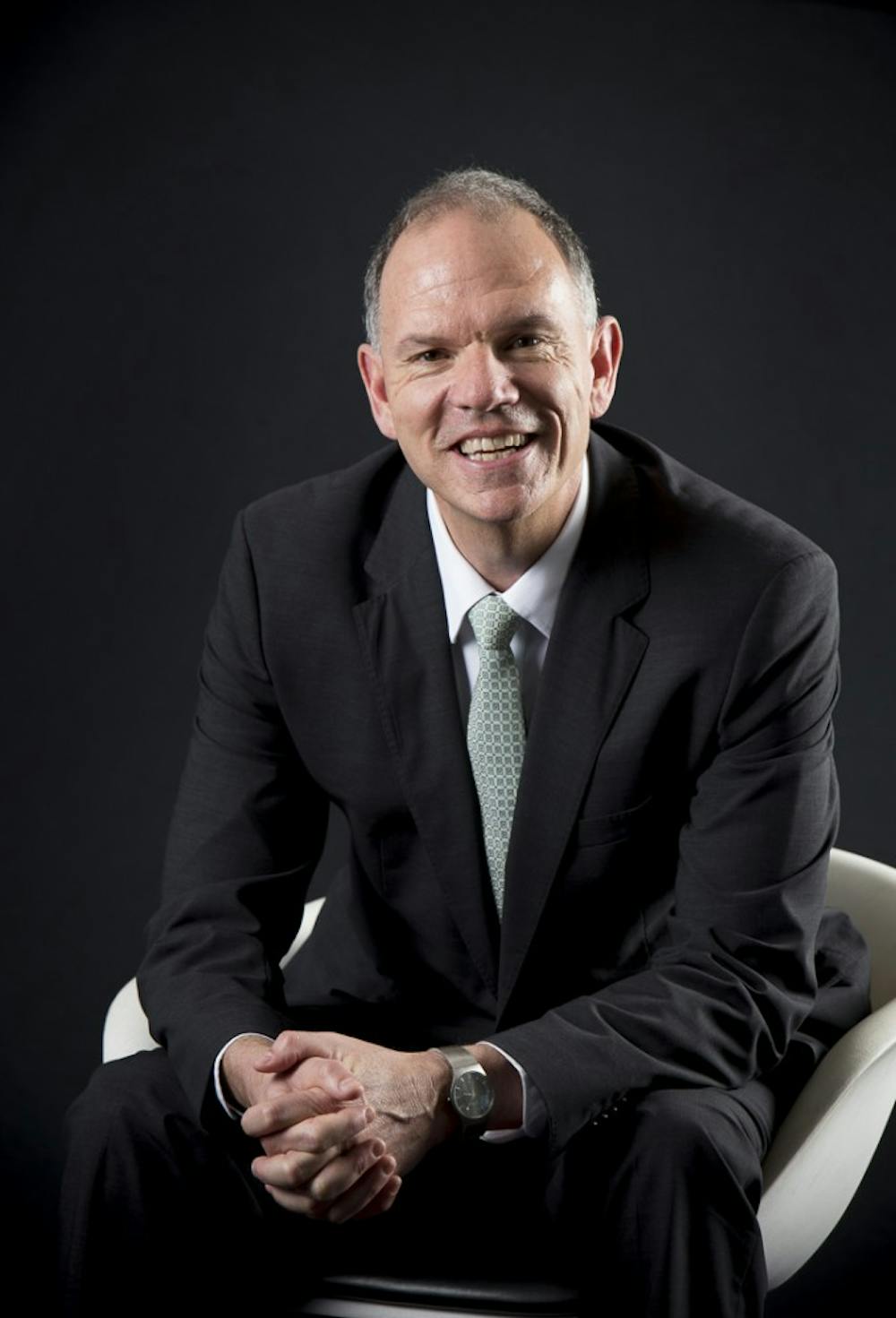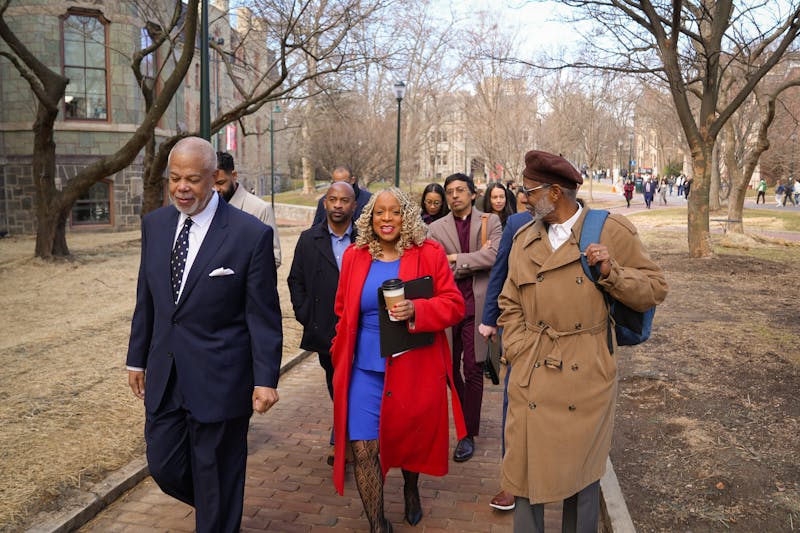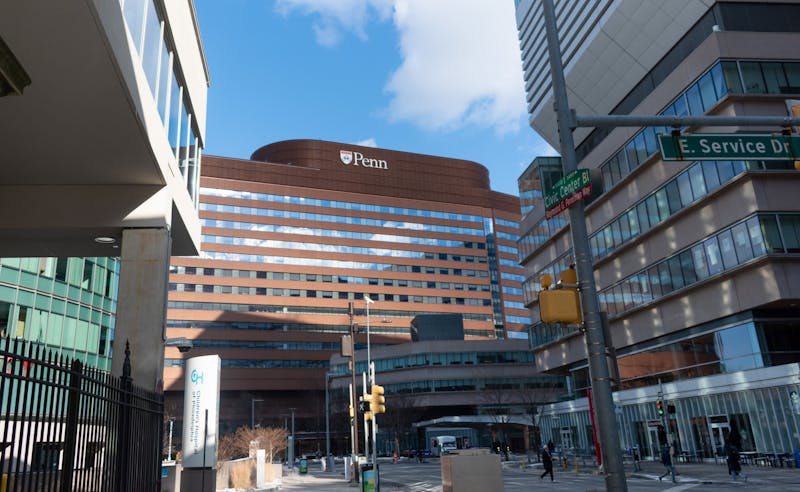
Even Geoffrey Garrett acknowledges that he is an unusual pick for the Wharton dean position.
“I look like an unusual candidate for the dean job,” Garrett said in a Skype interview with The Daily Pennsylvanian last Sunday. “One, I am in an institution halfway around the world in Australia. Second, my academic training is in political economy. It’s not in management or finance.
“But the more I think about it, the more I see that my experience both as a research academic and an academic leader positioned me well for the Wharton job,” he added.
Unlike his previous three predecessors, Geoffrey Garrett does not have a degree in business or economics. A former Fulbright Scholar, he completed his master’s and doctoral degrees in political science at Duke University and his bachelor’s degree in the same subject at the Australian National University.
Currently a dean and professor of business at the Australian School of Business at the University of New South Wales, he served as an associate professor at Wharton in 1995-1997, teaching multinational management.
Management professor Peter Cappelli recalled working with Garrett in the 1990s. “He was — and I suspect still is — an outgoing guy willing to challenge the conventional wisdom as well as the status quo in organizations.”
“I remember he is very articulate, has very good interpersonal skills, is easy to talk to,” management professor Stephen Kobrin said.
Wharton professors commented that Garrett’s international and interdisciplinary background makes him a good choice to lead the school in a rapidly changing society.
“Now, looking back, I am not surprised [about the appointment],” Kobrin said . “His international experience is really important for the school, and the fact that he is an interdisciplinary academic and a dean now.”
Management professor Mauro Guillen talked about Garrett’s remarkably prescient research on the connection between a country’s attributes and economic performance.
Guillen pointed to one of Garrett’s most well-known and controversial publications, “Partisan Politics in the Global Economy,” published in 1998. Garrett predicted that social democratic government, though traditionally recognized as not as pro-business as conservative government, could also lead to economic growth.
“What happened in Germany [in the past decade] is totally consistent with his theory,” said Guillen, whose research covers the same topics as Garrett.
Garrett doesn’t plan a significant shift in Wharton’s ethos. “Keeping Wharton Wharton I think is the most important thing for me to do in the first instance,” Garrett said. “People talk appropriately about the Wharton way and the Wharton approach to business education. Certainly that’s something I respect enormously and just want to become part of. ”
Leveraging Wharton’s strength
When asked if he would rebrand Wharton and shift away from a finance-focused image, Garrett said, “What you want to do is leverage that, you don’t want to say you should move away from it.”
As many western governments are struggling financially with the consequences of the global financial crisis, Garrett believes that finance will play an even bigger role in the future.
“[Governments] will actually be looking more into creative private sector solutions to what we would consider [to be] social challenges,” he said. “The ability of global finance to leverage resources is just extraordinary, so never underestimate the innovativeness of finance. ”
Garrett added that a Wharton education is also valuable in the technology industry.
“If you think about a successful internet ... you have to have good technical ideas [and] good programmers,” he said. “Coming up with a good business model is at least as important, and certainly that’s where the Wharton savvy can add enormous value.
“If you can bring financial savvy to the world of entrepreneurship and innovation, you are way ahead of the game.”
Business education in an online world
“Half of the business schools in this country could be out of business in 10 years — or five,” Richard Lyons, the dean of University of California, Berkeley’s Haas School of Business, said in an interview with Bloomberg Businessweek last month.
He argued that lower-ranked business schools would not be able to compete with online degrees issued by prestigious business schools.
Garrett praised the fact that Penn is a leading institution in MOOCs — Massive Open Online Courses — and acknowledges that the MOOC platform Coursera helps “spread the word about how good things are on the ground, in the campus of Philadelphia.”
However, he does not think that Wharton will issue online degrees, because an online program cannot substitute for the on-campus experience at Wharton.
“You can interact with some of the best academics in the world, you get a fantastic student cohort to interact with and you get a network of an extraordinary alumni community,” he said.
Nevertheless, he believes that the “flipped classroom” will become a powerful concept in business education.
“What we should do is to allow students to consume lecture materials in their own time ... on their smartphones,” he said. “The precious and exciting part about the in-class experience is interaction.”
Garrett pointed out that the challenges and opportunities of business schools today come from “the two biggest forces in the past decades” — globalization and technology.
“Dealing with the challenges as well as opportunities of globalization and technology are a big part of my job here [at University of New South Wales],” he said.
“It plays out differently in different institutions, and Wharton is a unique institution,” he added.
Throughout the interview, Garrett expressed a combination of modesty and confidence.
“I am just incredibly privileged to have the opportunity to work with not only extraordinary members of faculties, but also extraordinary students and alumni,” he said.
The Daily Pennsylvanian is an independent, student-run newspaper. Please consider making a donation to support the coverage that shapes the University. Your generosity ensures a future of strong journalism at Penn.
DonatePlease note All comments are eligible for publication in The Daily Pennsylvanian.







